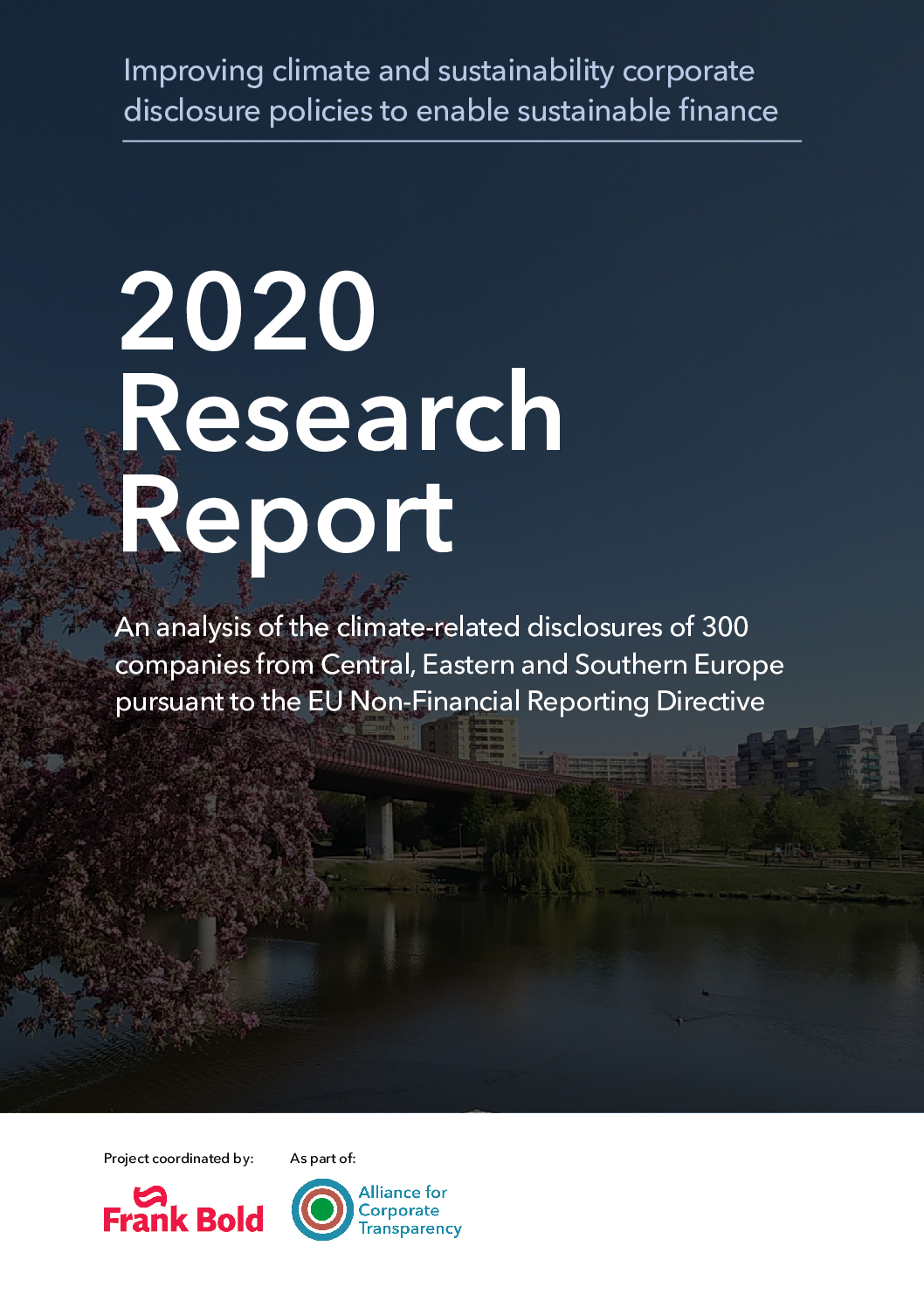Improved Sustainability Corporate Disclosure Policies
The project is completed. It aimed at reorienting capital flows towards sustainable investment, supporting companies’ transition to a GHG-neutral economy.

Project info
Bulgaria, Croatia, Czech Republic, Greece, Hungary, Italy, Poland, Romania, Slovakia, Slovenia, Spain
10/19 - 09/21
Private sector, EU institutions, National governments
119,292.87 €
Contact info
Filip Gregor
- Frank Bold Poland
Background
Since 2018, the EU Non-Financial Reporting Directive has required large corporations to disclose information on their sustainability impacts, risks, and plans. However, the Directive does not specify the information that has to be disclosed. As a result, many companies have failed to provide meaningful information. This has been particularly true for the project’s target countries. The resulting lack of transparent and comparable disclosures has led to misallocation of investors’ and banks’ investments, and corporations have thus not been incentivised to implement effective climate mitigation plans.
Project
Investors and banks need clear, concise, and comparable data to adjust their investing strategies so that they can be assured that they invest in sustainable assets. The project aimed to develop a clear guidance for corporations to disclose their sustainability-related information in line with the goals of the EU Non-Financial Reporting Directive (NFR Directive), as well as evidence-based recommendations for the improvement of the Directive.
It thus enabled banks and investors to make informed decisions and in turn facilitated the redirection of private capital away from carbon-intensive assets and towards sustainable investment. Once sustainability becomes an indispensable condition for investors, large EU companies will be financially motivated to develop and implement profound climate change mitigation plans, in the long-term leading to a GHG-neutral EU.
The project focussed on three steps to reach this goal. First, it analysed the quality of climate-related disclosures of 300 large companies in Central, Eastern, and Southern Europe. Second, it provided guidance to companies, policy makers, regulators, and other relevant stakeholders on the kind of information they need to disclose, based on the NFR Directive requirements and the data from the analysis. Third, it organized a discussion between members of civil society and investors that will in the end deliver a coherent and consensual proposal to EU institutions on the necessary specification of the NFR Directive requirements.
State of Results
- The project has published and disseminated an analysis of the non-financial reporting of 300 companies from Central and Southern Europe. The research report includes a cross-country comparison as well as a comparison with the assessment of reports from the previous round of research.
- The project results were presented at a high-level meeting hosted by the European Parliament’s Group on Responsible Business Conduct and in further bilateral meetings with the European Commission, the Permanent Representations of the EU Member States and the relevant ministries of the main Member States.
- The project findings and recommendations were reflected in the recommendations of the European Parliament’s own-initiative report on sustainable corporate governance, which also included recommendations for the reform of the EU’s Non-Financial Reporting Directive. Similarly, they were reflected in the report and recommendations of the European Financial Reporting Advisory Group (EFRAG) Project Task Force on EU Standards for Non-Financial Reporting, whose work the project actively supported. The recommendations of the European Parliament and the Project Task Force were incorporated by the European Commission in its proposal for the Corporate Sustainability Reporting Directive (which will replace the Non-Financial Reporting Directive).
Last update: April 2024

